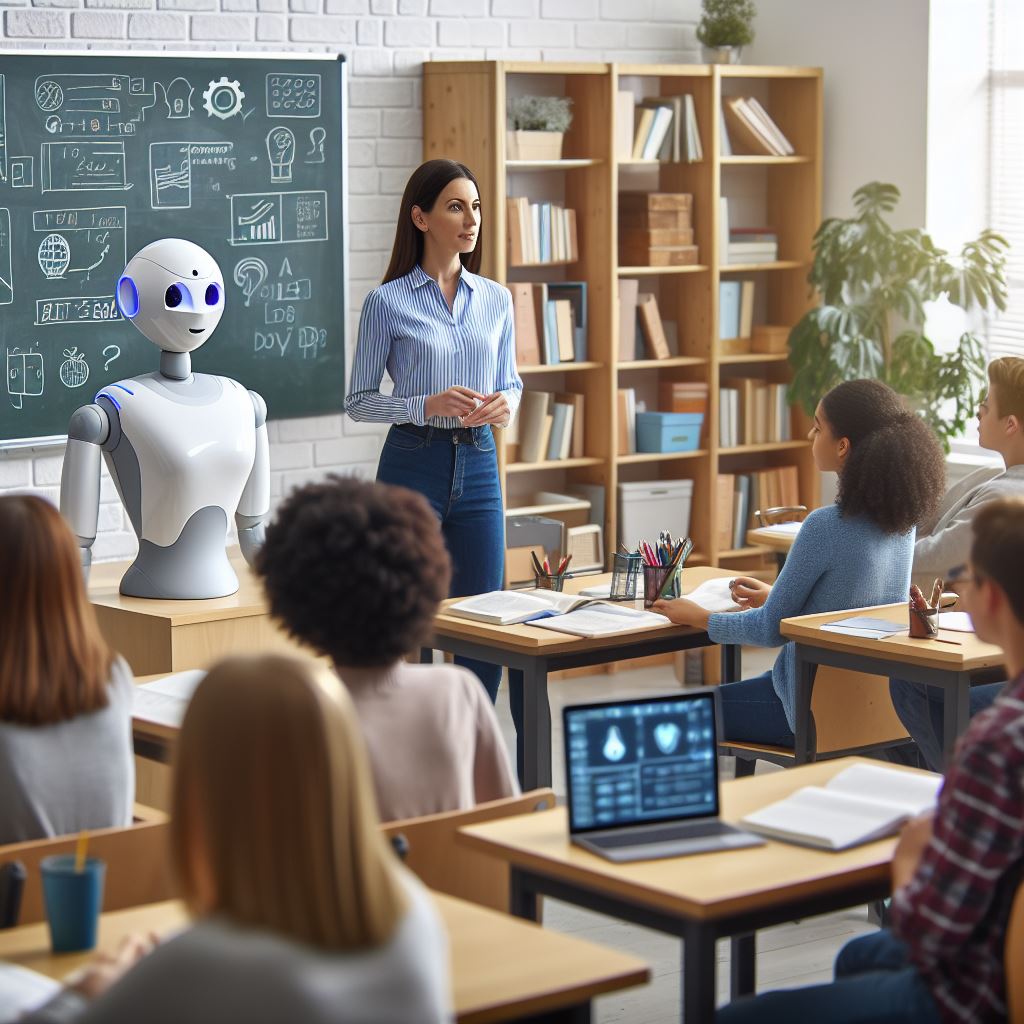
Recent months have seen a growing interest in A.I. chatbots among teenagers, leading to debates within the educational community. The appearance of tools such as ChatGPT, with the ability to produce human-like essays, elicited varied responses from teachers, tech billionaires, and school districts.
Last year, warnings circulated in schools, cautioning students against using A.I. chatbots for academic dishonesty. Simultaneously, the tech industry portrayed A.I. as a transformative force, with varying opinions on its potential impact on society.
The response from school districts was often reactive, leading to outright bans on A.I. chatbots rather than a nuanced approach to incorporating artificial intelligence into education. This left many students grappling with conflicting narratives about A.I.
Isabella Iturrate, a 12th grader at River Dell High School in Oradell, N.J., advocates for a more balanced perspective on A.I. education. She emphasized the need to move beyond extremes and find a middle ground that acknowledges both the potential benefits and risks of A.I.
"We need to find some sort of balance between 'A.I. is going to rule the world' and 'A.I. is going to end the world,'" Iturrate said.
As discussions around A.I. education gain momentum, teenagers are asserting their voice in shaping the narrative. Schools, still in the early stages of defining "A.I. education," face input from influential tech giants like Amazon, Microsoft, and Google, each advocating for different emphases within the curriculum.
The National Science Foundation recently announced grants to prepare students for A.I. careers, while nonprofit groups emphasize the importance of fostering a critical lens toward emerging technologies. Amidst this landscape, River Dell High School stands out for its student-led initiative to explore A.I. education.
The school's Human Rights Club, spearheaded by students like Isabella Iturrate, undertook a comprehensive survey on A.I. chatbots. Initially concerned about the potential negative impact of A.I. on creative professions, the students broadened their perspective as they discovered positive use cases, such as predicting rogue waves and protein folds.
The survey, conducted schoolwide with over 500 students participating, revealed surprising insights. Despite concerns about academic dishonesty, only a small fraction reported using ChatGPT for plagiarism. However, a majority of students expressed curiosity about A.I. and a desire for clearer guidelines on its use.
The Human Rights Club advocates not only for A.I. education that enhances academic skills but also for awareness of A.I. harms. Tessa Klein, a 10th grader and co-leader of the club, highlighted A.I.'s potential role in perpetuating biases, framing it as a human rights issue.
River Dell High School Principal Brian Pepe supported the students' initiative, hoping to incorporate A.I. education more formally into the school's curriculum. The students' presentation of survey findings to teachers showcased their peers' interest in a more comprehensive approach to A.I. education.
As high schools grapple with the integration of A.I. into education, the students at River Dell High School provide a unique model for addressing the complexities of A.I. by balancing exploration, critique, and practical application.